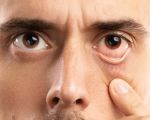- 1-Recognizing-early-symptoms-of-ocular-herpes
- 2-Detailed-description-of-common-symptoms
- 3-Importance-of-timely-diagnosis-and-treatment
- 4-Real-life-experience-and-case-studies
- 5-Professional-advice-on-managing-ocular-herpes
- 6-Where-to-find-expert-services-and-support
1. Recognizing Early Symptoms of Ocular Herpes
Ocular herpes, caused primarily by the herpes simplex virus, is a condition that affects the eye and can lead to serious complications if left untreated. Knowing how to recognize symptoms of ocular herpes early is crucial for prompt medical intervention. The initial signs often mimic common eye irritations, which can mislead patients into underestimating the severity. Awareness of these early symptoms can make a significant difference in preventing long-term damage to vision.
Early symptoms typically begin with a sensation of discomfort or irritation rather than intense pain. Recognizing subtle changes is the first step in seeking professional care.
2. Detailed Description of Common Symptoms
Understanding the specific symptoms helps differentiate ocular herpes from other eye issues. Key symptoms include:
2.1 Eye Redness and Inflammation
The affected eye often appears red and bloodshot, caused by inflammation of the cornea or conjunctiva. This redness may be accompanied by swelling around the eyelids.
2.2 Pain, Tearing, and Sensitivity to Light
Mild to moderate eye pain or a gritty sensation is common. Patients often experience excessive tearing and increased sensitivity to bright lights (photophobia), making normal activities uncomfortable.
2.3 Blurred Vision and Eye Discharge
Blurred or decreased vision can occur if the cornea is involved. In some cases, a watery or mucous-like discharge might be present, indicating infection.
2.4 Presence of Sores or Lesions
Sometimes, small, painful blisters or ulcers may appear on the eyelids or the surface of the eye. These lesions are a hallmark of herpes virus activity.
2.5 Recurring Symptoms
Ocular herpes is known for recurrent outbreaks. Symptoms can reappear during periods of stress, illness, or immune suppression, often in the same eye.
3. Importance of Timely Diagnosis and Treatment
Early recognition and treatment of ocular herpes are vital to prevent complications such as corneal scarring, vision loss, or even blindness. A delay in diagnosis can lead to permanent damage, which is often irreversible.
Healthcare professionals use a combination of symptom history, eye examinations, and laboratory tests to confirm the diagnosis. Antiviral medications, either topical or oral, are prescribed to manage the infection and reduce the risk of recurrence.
Ignoring early symptoms can result in more aggressive infections requiring longer and more complicated treatments.
4. Real-Life Experience and Case Studies
Take the case of James, a 34-year-old graphic designer who initially dismissed his eye discomfort as simple irritation from screen exposure. Within days, his eye became red, painful, and his vision blurred significantly. After visiting a specialist, James was diagnosed with ocular herpes and began antiviral treatment promptly. His recovery was swift, but the experience taught him the importance of recognizing subtle symptoms early.
Stories like James’s highlight the importance of public awareness and encourage people not to overlook persistent eye discomfort. Many patients find reassurance and guidance through trusted resources such as Eye Docs, where expert advice and professional services are available to manage such conditions effectively.
5. Professional Advice on Managing Ocular Herpes
Experts emphasize the following strategies for living with and managing ocular herpes:
5.1 Regular Eye Check-ups
Routine examinations allow early detection of recurrent symptoms before they escalate.
5.2 Avoiding Known Triggers
Stress management, protecting eyes from excessive sunlight with UV-protective eyewear, and maintaining a strong immune system help reduce flare-ups.
5.3 Strict Adherence to Medication
Following the prescribed antiviral regimen is essential to control viral activity and prevent complications.
5.4 Immediate Consultation When Symptoms Appear
Any sudden changes in vision, persistent redness, or pain should prompt an urgent professional evaluation.
6. Where to Find Expert Services and Support
For those seeking professional diagnosis, treatment, or specialized advice on ocular herpes, Eye Docs offers comprehensive services. From advanced diagnostic tools to personalized care plans, Eye Docs provides a trusted environment to manage ocular health confidently.
Additionally, their platform offers resources on protective eyewear, antiviral products, and support networks that empower patients to take control of their eye health.








